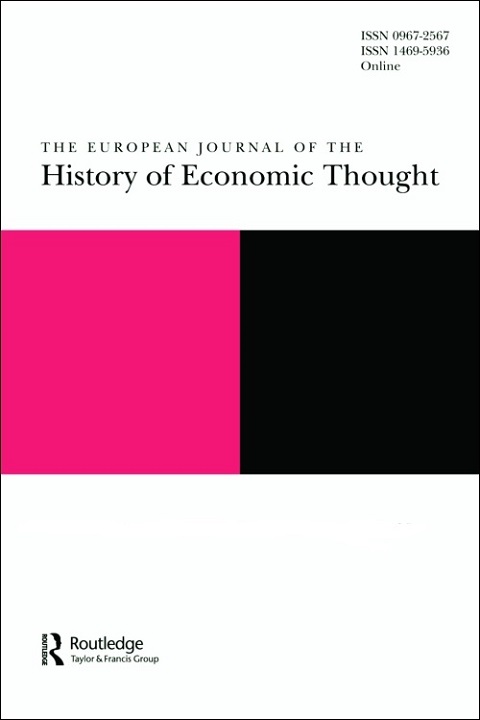
The European Journal of the History of Economic Thought
Volume 13, Issue 1, Mar 2006
Pages 1-38
- DOI: 10.1080/09672560500522835
- Print ISSN: 0967-2567
- Online ISSN: 1469-5936
An ‘exception culturelle’? French sensationist political economy and the shaping of public economics
Abstract
This paper examines some ideas developed in the field of public economics by French Sensationist political economists, from Turgot and Condorcet to the young Jean-Baptiste Say. An ideal-typical account of their position is based on the fact that issues raised by public expenditure and revenue are not dealt with independently. Instead, a strong link between the two sides of the budget is emphasized, an approach arising out of political considerations concerning human rights and equity. Following on from this they develop a theory of public expenditure based on public goods – national and local – and externalities, and a theory of taxation culminating in a justification of progressive taxation. The central section of the paper forms a kind of pivotal point in the analysis, showing how the above political and ethical requirements of the theory lead to the first estimation of the optimal amount of public expenditure and revenue – involving an equilibrium at the margin.
Related Searches
Keywords
Subjects
Countries
Periods
- 1871-1914. Development of Major Contemporary Currents of Thought: Marginalism, Institutionalism, Historicism and Socialism
- 1756-1800. Emergence of Modern Currents of Political Economy